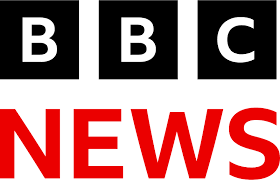BBC
Overview
The British Broadcasting Corporation (BBC), with headquarters in London's Broadcasting House, is the country's official broadcaster. With over 22,000 workers worldwide, 19,000 of whom work in public-sector broadcasting, it is the oldest national broadcaster in the world and the one with the most staff. The BBC is governed by an agreement with the secretary of state for digital, culture, media, and sport and was founded pursuant to a royal charter. A yearly television license fee that is levied against all British households, businesses, and organizations that use any kind of equipment to receive or record live television broadcasts and I Player catch-up serves as the main source of funding for this organization's operations.
BBC Radio
The charge is established by the British government and approved by parliament. It is used to pay for the BBC's radio, television, and internet services that serve all of the UK's regions and nations. The BBC World Service, which debuted in 1932 as the BBC Empire Service and broadcasts in 28 languages and offers extensive TV, radio, and internet services in those languages, has also received funding from the BBC since 1 April 2014.
BBC Studios
A quarter of the BBC's income comes from BBC Studios, its commercial division (previously known as BBC Worldwide), which distributes BBC World News, a 24-hour English-language news service that is broadcast internationally. The remaining revenue comes from BBC.com, which is run by BBC Global News Ltd. The business received the Queen's Award for Enterprise in 2009 in honor of its accomplishments abroad. In June 1920, the Wireless Telegraph Company of Marconi in Chelmsford produced the country's first live transmission. Lord Northcliffe of the Daily Mail funded it, and Dame Nellie Melba, a well-known Australian soprano, sang. The Melba broadcast captured the audience's attention and signaled a shift in the way that the British public felt about radio.
This widespread excitement, meanwhile, was not shared in government circles, as such broadcasts were made in order to obstruct crucial military and civil communications. By the end of 1920, pressure from these quarters and unease among the General Post Office (GPO) officials, who served as the licensing authority, were enough to force a halt on more Chelmsford transmissions.
BBC Plans
The funding plans quickly proved insufficient. As a result of amateurs building their own receivers and listeners purchasing competing unlicensed sets, set sales were poor. When negotiations between the GPO and the BBC came to a halt in the middle of 1923, the Postmaster General asked the Sykes Committee to conduct a study of broadcasting. In order to alleviate the BBC's immediate financial plight, the Committee suggested a short-term reorganization of licensing prices with enhanced enforcement and a higher proportion of the license earnings divided between it and the GPO. A straightforward license fee of 10 shillings was to be charged after that to pay for transmissions. Midway through 1925, the Crawford committee was once again debating the future of radio.
The unified (monopoly) broadcasting service had at this point gained support within the BBC, led by Reith, but additional funding was still needed to support fast development. Wireless manufacturers wanted out of the losing consortium because Reith wanted the BBC to be viewed as a public service rather than a for-profit company. The Crawford Committee's proposals were released in March of the following year, and the GPO was still debating them in May of 1926, when the general strike began.



![Top Reasons To Have SEO Plan For Every Dubai Business [2025 Update]](/thumnails/blog/2024/11/1732278589.jpg)















